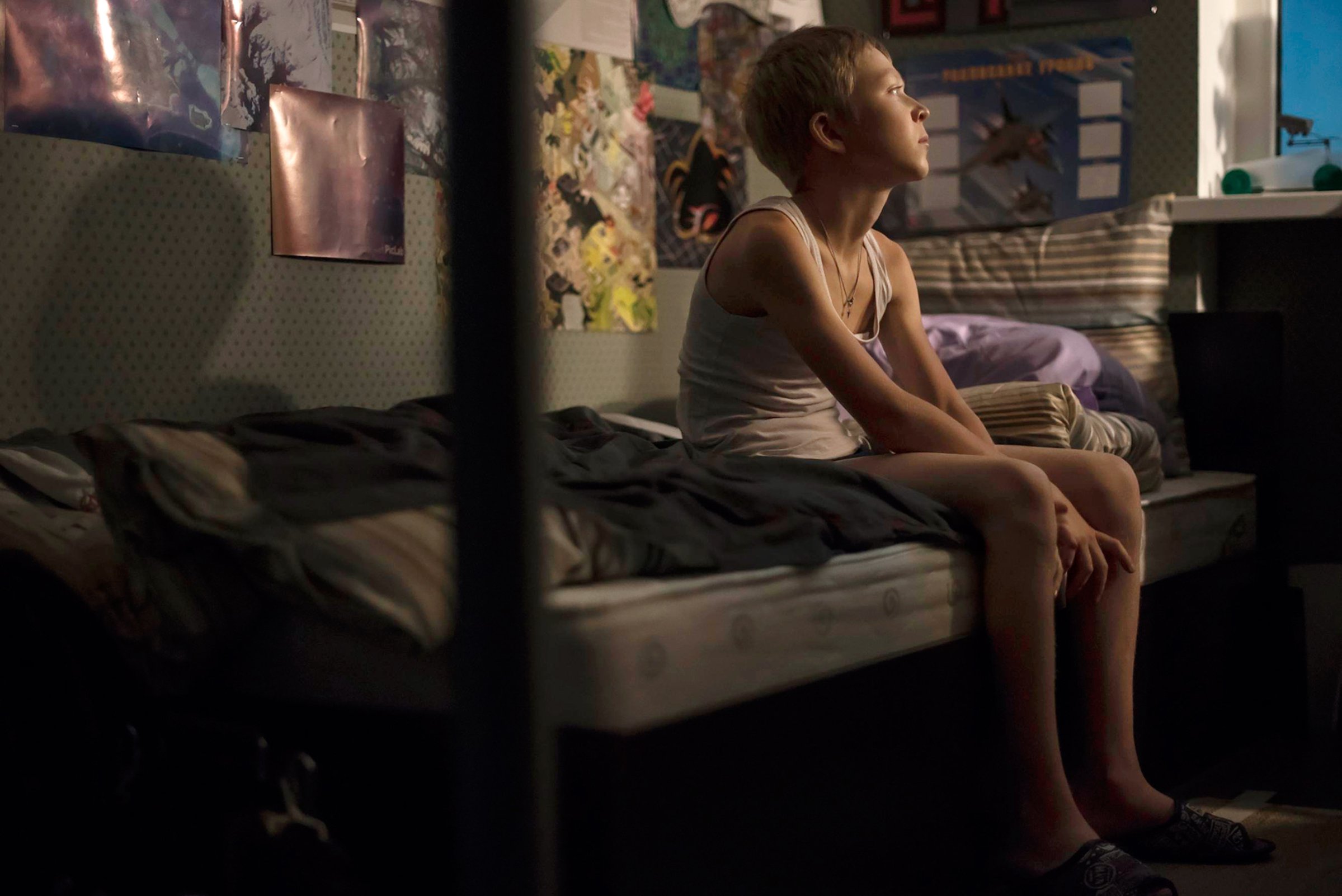
Spending 12 days at the Cannes Film Festival is, for movie lovers, pretty close to paradise, and most years it’s extremely easy to lose track of the world outside. Not so this year.
Even if nearly all critics and journalists dutifully switched off their phones during screenings, most of us couldn’t resist powering up immediately afterward to check for news updates. World events don’t stop unspooling as we’re sitting in the dark. Plus, security was tighter than ever this year: at press screenings and gala premieres, every saggy backpack and bejeweled minaudière was thoroughly inspected by the cheerful staff, women in sleek Mondrian-style dresses that Emma Peel would have loved. Everything in Cannes, including the employees’ uniforms, is just a little bit glamorous. That’s less a way of avoiding an uncertain, scary world than an act of standing as a bulwark against it.
Yet despite the dazzling, parade-of-stars setting, one way or another Cannes always brings the outside world to its screens. One of the best movies at the festival this year, Andrey Zvyagintsev’s Loveless, is a story about divorcing parents (Maryana Spivak and Aleksey Rozin) whose child goes missing. But those are just the basics: Zvyagintsev–director of the 2014 Oscar nominee Leviathan–uses that plot to weave an allegory about modern Russia and the heartlessness of its government. The picture is made with a seeming chilliness that’s actually a kind of anguished warmth. And Swedish director Ruben Ostlund’s The Square–which won the festival’s top prize, the Palme d’Or–is a sly, sardonic picture about a dashing museum curator (Claes Bang) whose dysfunctional institution is a microcosm of the larger world. Can art, or the tools used to promote it, cross the bounds of moral responsibility? What does it take to jog the upper classes out of their comfortable insularity? The Square is outlandishly funny and biting, and it features a fascinating and sometimes disturbing performance by Terry Notary, the gifted actor and movement choreographer who has helped bring motion-capture characters to life in the Hobbit and Planet of the Apes movies.
But if many of the movies at this year’s Cannes struck a somber or thoughtful chord, there was joy to be found too. In François Ozon’s rapturously twisted, Brian De Palma–style thriller L’Amant Double, a young woman suffering from possibly psychosomatic stomach pains (Marine Vacth) falls in love with her therapist (Jérémie Renier), whose secret life draws her into a web of deceit and kinky sex. Yet more proof, should you need it, that the French really know how to live.
Sofia Coppola’s The Beguiled offers ambrosia of another sort. The director has remade a seedy 1971 Don Siegel thriller (starring Clint Eastwood) into a poetic and haunting meditation on what men want from women, what women want from men, and the desperate depths to which both will go to get it. Nicole Kidman–who was the queen of Cannes this year, appearing in no fewer than four movies or made-for-television projects presented at the festival–plays the headmistress of a girls’ boarding school in war-bedraggled 1864 Virginia. The women there–including Elle Fanning, who plays a student, and Kirsten Dunst, a teacher, both superb–fall under the spell of a wounded Union soldier (Colin Farrell) who infiltrates their stifling world. Coppola has made a serene, supple, gorgeous picture that hits more than a few notes of despair. Its skin is fair, but its heart is dark.
Among the most heartfelt films of Cannes 2017, Todd Haynes’ Wonderstruck, adapted from Brian Selznick’s novel, tells the dovetailing stories of two 12-year-olds, Ben (Oakes Fegley) and Rose (Millicent Simmonds), living 50 years apart. Ben, living in 1977 Gunflint Lake, Minn., loses his mother and, in a particularly cruel twist of fate, loses his hearing in a freak accident shortly thereafter. Rose, growing up in 1927 Hoboken, N.J., is also deaf, and she too has lost her mother, in a way. She finds solace at the movies, and in building miniature cities out of paper, a way of expressing herself outside the world of words. This is a love letter to the pleasure of making anything by hand and a story of finding your way to the people who understand you–and it’s just a portion of the riches that await movie lovers in the months ahead.
More Must-Reads From TIME
- The 100 Most Influential People of 2024
- The Revolution of Yulia Navalnaya
- 6 Compliments That Land Every Time
- What's the Deal With the Bitcoin Halving?
- If You're Dating Right Now , You're Brave: Column
- The AI That Could Heal a Divided Internet
- Fallout Is a Brilliant Model for the Future of Video Game Adaptations
- Want Weekly Recs on What to Watch, Read, and More? Sign Up for Worth Your Time
Contact us at letters@time.com